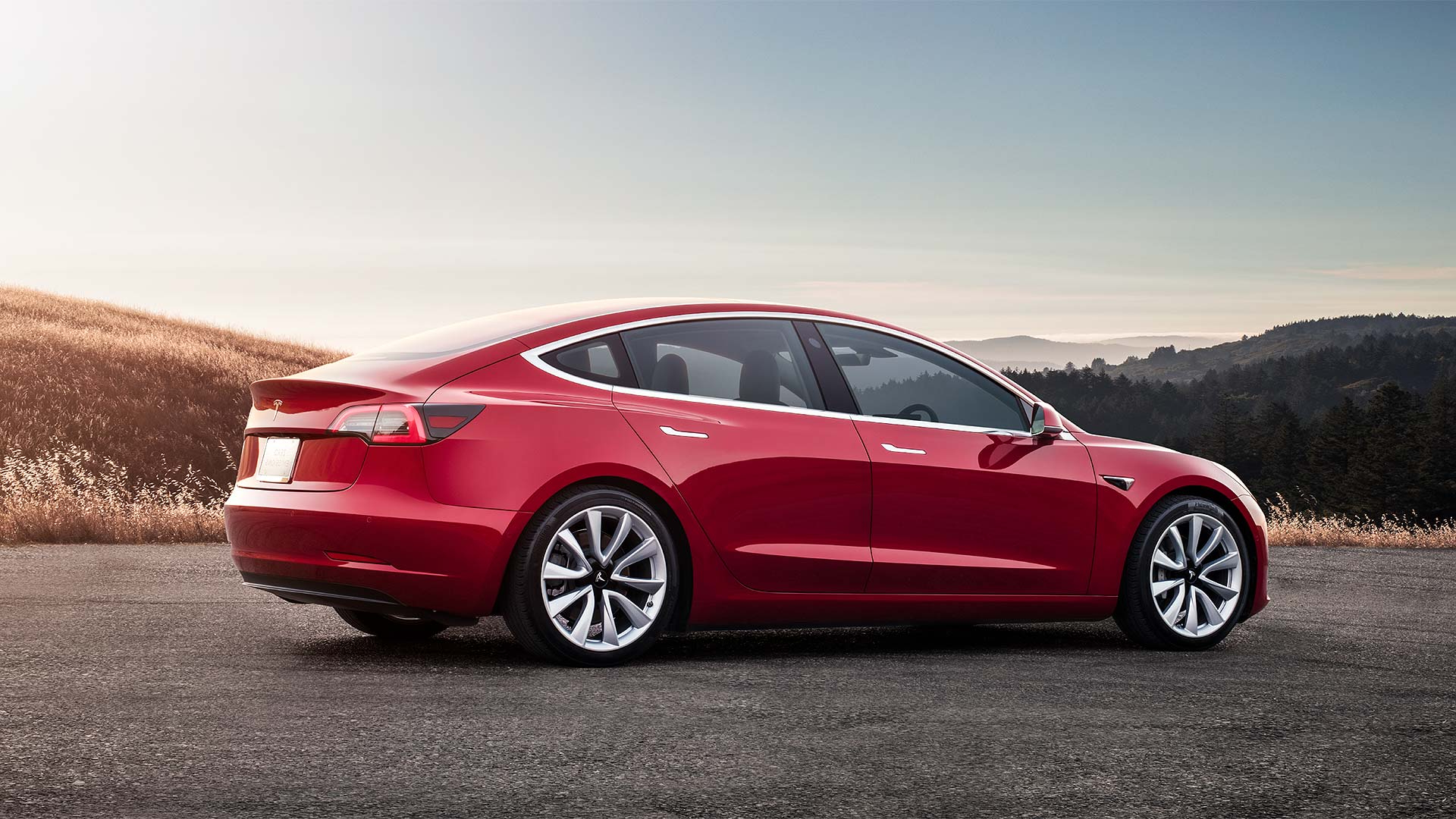
The Tesla Model 3 is finally now exempt from UK road tax (VED) as part of changes in the 2020 Budget that make all electric cars tax-free.
Chancellor Rishi Sunak announced the removal of the £40,000 ‘luxury car tax’ limit for electric cars emitting 0g/km of carbon dioxide (CO2).
The change came into force in April 2020.
ALSO READ: How much does it cost to charge a Tesla Model 3?
After the first year of ownership, this saves Tesla Model 3 drivers £325 a year for five years.
The government has committed to the tax cut for electric cars for five years, up to 2025.
Click here to see a full table of VED rates for all vehicles.
How was a zero-emission Tesla taxed?
Originally, the Tesla Model 3 was taxed under the government’s unpopular 2015 Summer Budget road fund licence changes. This made it liable for £310 ‘additional rate’ road tax for five years (since raised to £325).
It effectively more than halved the government’s £3,500 Plug-in Car Grant contribution to the price of the car for long-term Tesla owners.
The Plug-in Car Grant itself has since been cut to today’s £3,000 sum.
All new cars (registered on or after 01/04/2017) with a list price over £40,000 have to pay a £325 per-year base rate for five years from the start of their second licence. To be clear, that’s one year after you buy the car new, when the first road tax payment is due.
It is this charge that electric cars have now been exempted from.
The government has also backdated the exemption, which is good news for Tesla Model 3 early adopters. UK deliveries of the car began in June 2019.
Tesla currently sells three grades of Model 3 in the UK. The cheapest Standard Range Plus version costs from £40,490.
The Long Range model is £46,990 and the Performance grade is £56,490.
If your old car is still good and money matters, just wait til the old car hits end of life. If you can afford it, why wait? Any EV on the road is better than an ICE. In our family we desperately want to get an EV as soon as possible, but the timing needs to be right for us in order to match our financial cycle for new cars. So we’ll wait until the old car dies, hopefully Model Y will be available by then. Currently this is our most favored car. The “problem” with e-Niro and Kona is their delivery times, you need to account for that. They are really nice cars and have a good price point.
Had been thinking of getting a Tesla Model 3 but because of the stupid 40k tac rip off l will find something cheaper. So Tesla has lost a customer because of this.
Yes, we wrote about that, Rob – so frustrating! https://www.motoringresearch.com/car-news/tesla-model-3-not-road-tax-free/
It’s crazy that the £40K figure is a cliff edge. It means a Model 3 and a £200K McLaren will pay the same 5 x £310. Surely it should be a sliding scale? And, either way, why has the £40 figure been static since it was introduced? Car prices have increased, the £40K should increase in line with them. Grrr!
£1625 saving on car tax over 5 years is huge and could be put towards better things like FSD! I think this will motivate the Tesla fans who have been on the edge due to this added expense even though for a M3 in the UK, it was over £40k by a few £100. Cheers.